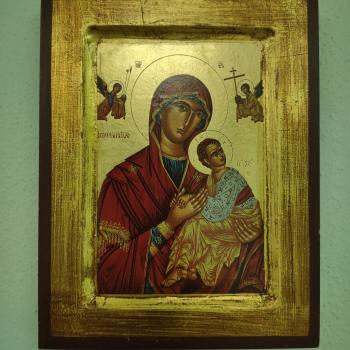Community is a gift. True community is based on some sort of gift economy. It is not the ancient way. The best description I can think of is it is part of the created order. Gift giving is the way about which we should be more conscious. Being more conscious of it can lead us into better communities of love and peace.
The Barter Myth
Anthropologist David Graeber describes the origin of the myth of barter. Adam Smith provides a thought experiment to describe a possible origin of money. Before money was developed people traded in a system of equal exchange of bartering. I need bread. You need shoes. I have shoes. How many shoes for bread? Somehow that thought experiment became economic history. Before money, we are taught, people bartered. Money developed as a matter of convenience to keep me from hauling around shoes while looking for a barefoot baker.
Recently, a friend described how her neighbor gave her a dozen eggs. My friend gave her neighbor some cookies. Another person commented on how barter still lives on. But my friend never said she and the neighbor negotiated or exchanged eggs for cookies. It may have happened that way. But it may be the case that the neighbor gave my friend eggs. My friend could have given the neighbor some cookies made from the eggs just out of gratitude or neighborliness.
Pre-historic Gift Economies
Graeber points out that cultures that never developed money, in the accepted sense of the term, have ever been found to live by a system of barter. Instead, the majority of these cultures work on a gift system. There are plenty of social rules that regulate how gifts are given. Yet, the communities work in such a way. Farley Mowat in The People of the Deer asked how to get some appropriate clothes made by the woman in the village who made winter clothes. He was told to ask her. He was also told to give her something he could provide. No analysis of relative values of the gifts were undertaken. No deadlines for when the clothes would be ready was agreed upon. There was no contract involved (not even a social contract).
The Early Gift Community of Believers
We read the words from Acts that describes believers holding all things in common. Yet, we make a mistake when we interpret them in the light of modern economics. Claiming the wealthy believers took care of the poor believers is not accurate. The wealthier believers decided to live the values of the Kingdom of God. The poor believers did the same. Each gave what they could while the Apostles distributed based on the need. How did they determine the need?
I do not believe they did. In other words, the Apostles did not attempt to check if someone was truly in need. They gave as people asked. A Food Bank ministry I was part of worked to determine the need of people who came asking for a box of food. But, we never did this when someone asked for fresh produce, or diapers, or anything else that had been donated. These items were gifts free for the asking if we had them. It was more efficient to just give to anyone who asked for these items.
The early disciples in Jerusalem worked out a sort of gift-communism. Goods were both freely given and freely received. They lived “love your neighbor as yourself” as closely as they could. The arrangement was not the whole understanding of Christian communion. It was a part of it.
The Up And Out Community
Grace is the expression of divine love. I do not know if Bill Watterson ever commented on the names Calvin and Hobbes. But they are the names of two early modern thinkers who saw human nature as a negative. The ideas of “Total Depravity” and “Nature red in tooth, fang, and claw” owe their origins to these people. Both men claimed to be Christians of one type or another. Both had a very limited understanding of grace. Thankfully, Christians believed Christ intends to restore an original goodness to Creation in this world.
The Christian community works in two directions of grace and gift. The believers reach upward to God and outward to people. This is possible because God is reaching out to all of us too. When we think about community, we should look at it as a gift. Solitary individuals often lose some mental or emotional stability because there is no experience of gift or grace. They neither give nor receive. They diminish their own lives in this way.
Evangelicals like to declare salvation is purely a divine gift. But somehow they also argue nothing else should be. This dismal view warps everything in our lives. It distorts our view of work, recreation, sex, and time. But these things are also gifts. Work is not drudgery. Recreation is more than exercise and entertainment. Sex is more than a necessary evil. Time is not our enemy.
Community is not an infringement on individuality or rights either. It enhances these things for us. Paradoxically, we are free only in community. It is a gift we cannot give ourselves.













